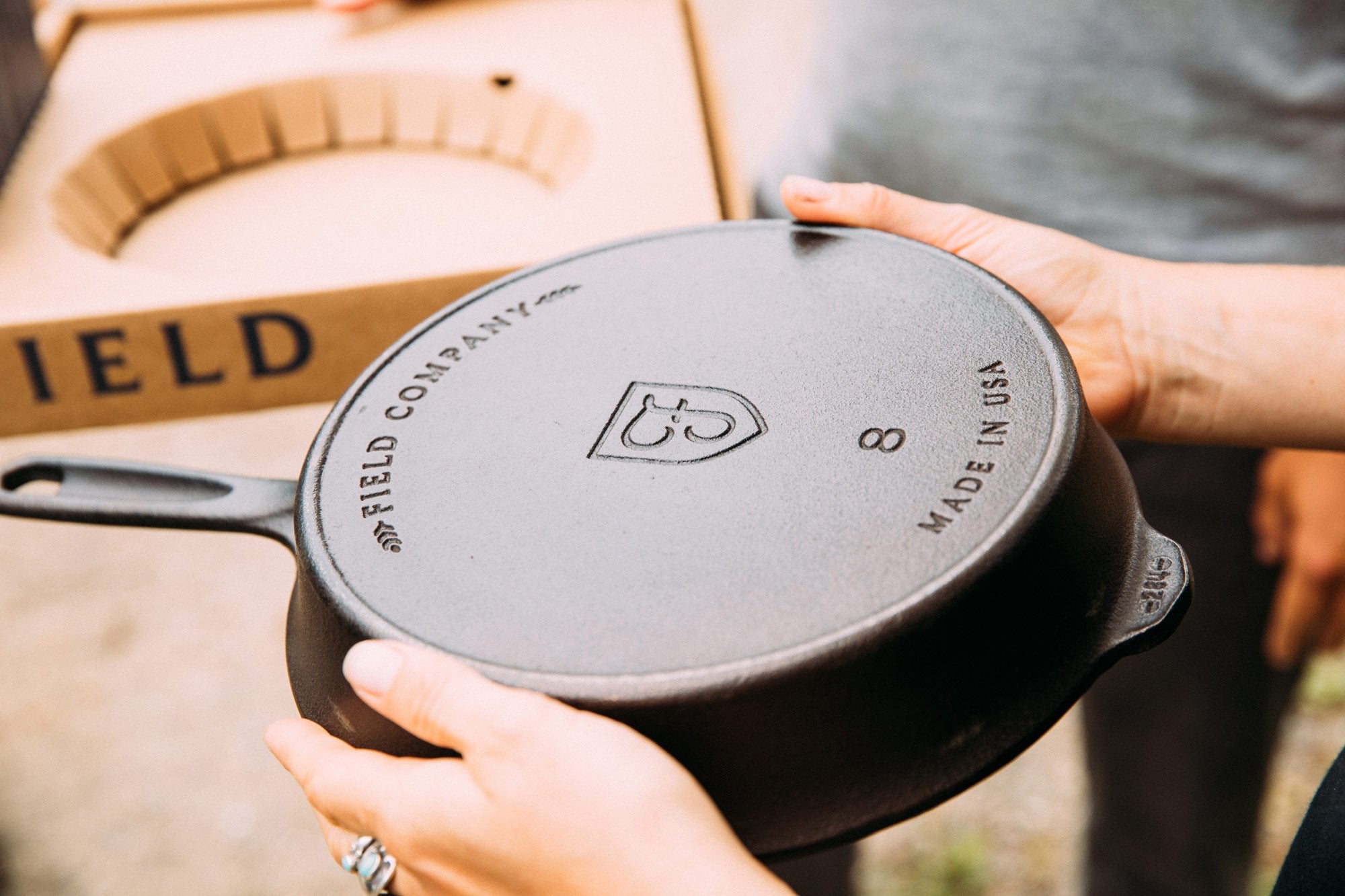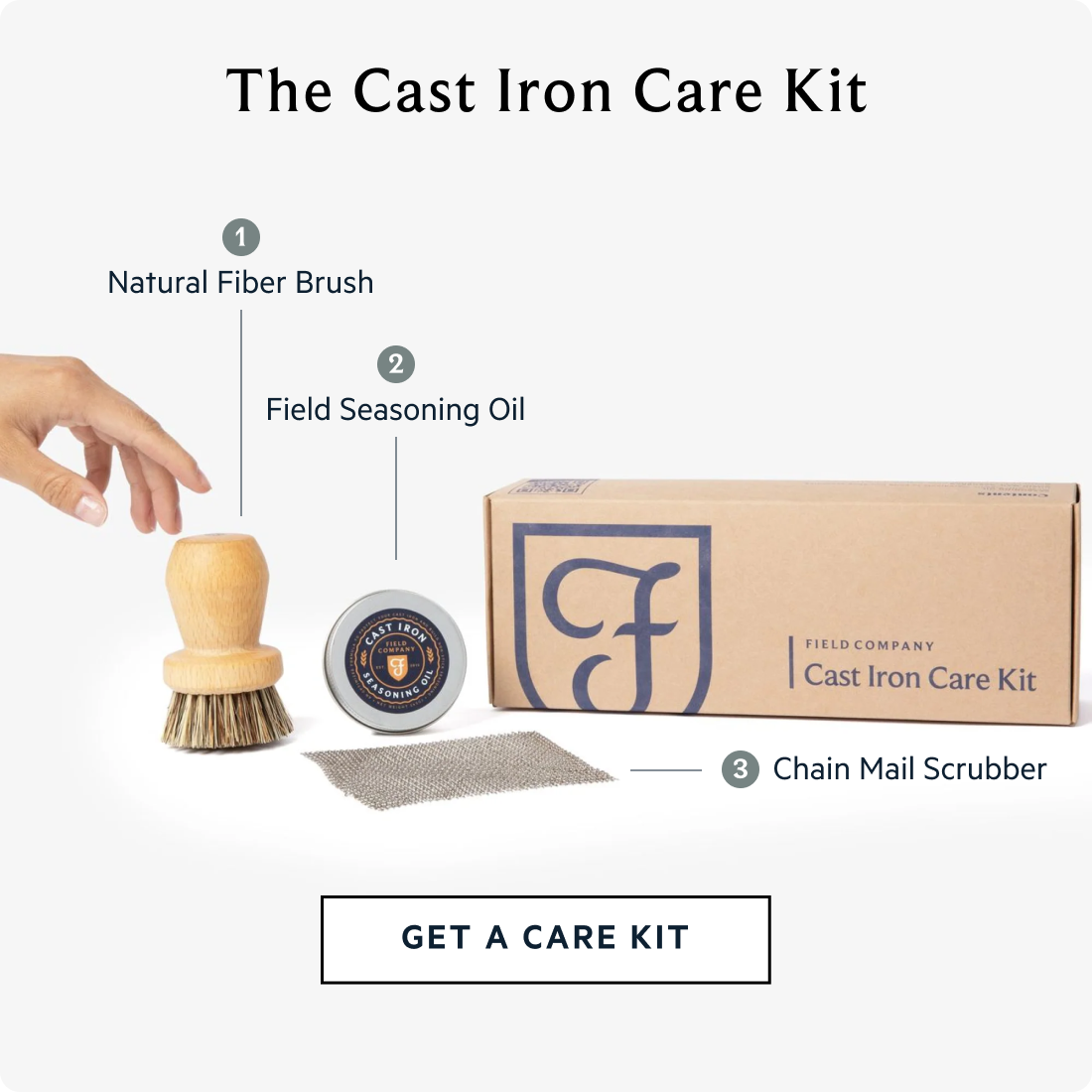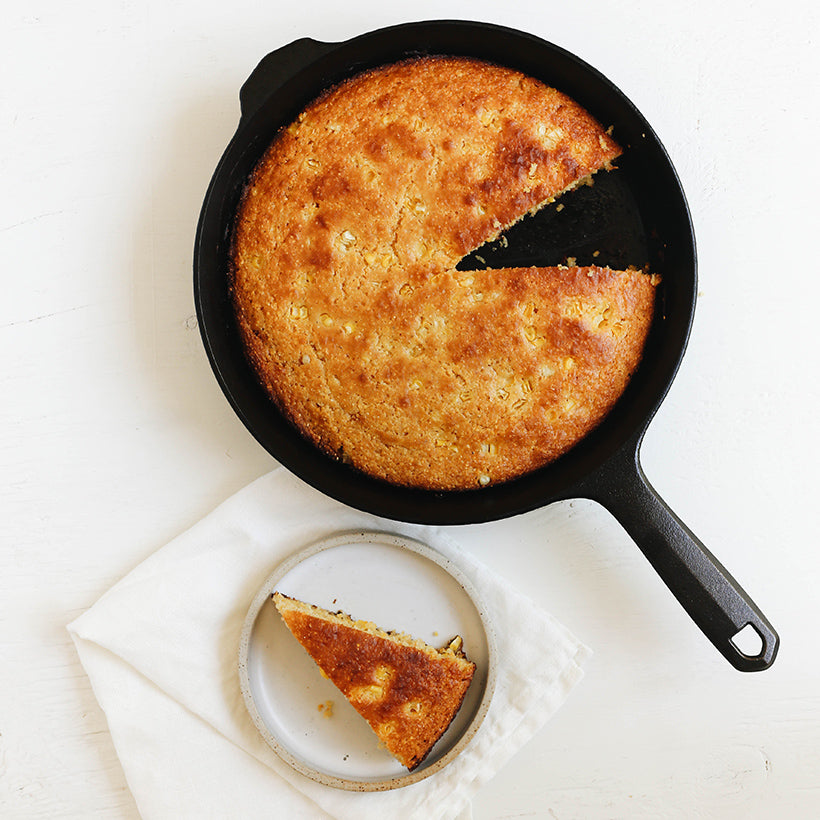Why Cast Iron is the Non-Toxic, Eco-Friendly Option
Searching for a more sustainable skillet choice? Cook in cast iron.
We often have conversations about the ingredients we eat, how they’re grown, and the impact they have on the environment around us. But what about the tools we use to cook them? Do the pots and pans you cook with matter? Simply put, yes! As with just about everything we buy and use, the items outfitting your kitchen have an impact beyond your own home. This is one of the many reasons we prefer cooking with—and making—cast iron cookware.

Why is cast iron the most sustainable cookware material? Read on to find out.
Naturally non-stick = better for nature
Let’s compare non-stick cookware: in one corner you have cast iron, which is naturally non-stick (thanks to the miracle of seasoning), and in the other you have artificially non-stick skillets. These pans get their non-stick quality from a synthetic coating of perfluoroalkyl substances, or PFAs (most famously/infamously Teflon). There’s some contentious debate around whether or not these chemical coatings have a negative impact on human health, which is why many people choose cookware that’s definitively non-toxic, like cast iron. What’s much more clear is that Teflon pans aren’t great for the environment. These skillets have an average lifespan of three to five years (before the non-stick coating becomes too scratched-up to use), so you’ll need to throw them out and buy a replacement pretty often. Add in the number of different pan sizes you’ll likely need, and that can amount to a lot of waste.
Once discarded, non-stick pans don’t break down easily, since you’re throwing away something that’s coated in what’s essentially plastic (not to mention the plastic handles that many synthetic non-stick skillets have). And the impacts of discarding plastic are long lasting: PFAs can persist in the environment for thousands of years, with some studies crediting them for contaminating drinking water across the United States.
Cast iron lasts a lifetime (and beyond)
In contrast, using a cast iron skillet can drastically reduce the amount of kitchen products you have to throw out. There’s a reason cast iron pans become heirlooms: they last for generations, and only improve with time and use. Plus, cast iron cookware is oven safe, so you don’t need a different set of pans for roasting and baking. (Artificially non-stick skillets cannot go from stovetop to the oven.) If you cook with cast iron, you’ll end up saving quite a bit of money in the long run, since you won’t be replacing skillets every few years, and the pans you own will be multi-functional.
Cast iron is non-toxic
No toxic or engineered plastic coatings. Field Skillets are machined smooth with a unique texture that seasons naturally to a nonstick patina, just by cooking on it.
100 years from now, this pan will be in your grandkid's kitchen, not in the landfill. And we back that up with our lifetime guarantee.
Cast iron is infinitely recyclable
Perhaps the most sustainable part of cast iron is the material itself. Iron can be infinitely recycled, and the process of recycling iron takes much less energy than refining new metal from a basic ore. Even if you do discard iron, it won’t harm the environment by leaching chemicals, and it’s already the fourth most abundant naturally occurring element in the Earth’s crust.

Cast iron is durable; it’s pretty difficult to mess up your cast iron skillet (and if you do, it’s pretty easy to fix). The material’s inherently long-lasting nature, combined with the naturally non-stick coating that seasoning gives you, makes cast iron one of the most eco-friendly materials you can choose to outfit your kitchen. So toss out your plastic-coated pans, and get a skillet that will last a lifetime (or likely longer).
Stay in touch.
We're not just a company, we're cast iron nerds. Sign up for cast iron recipes, how-tos, and new deals.



